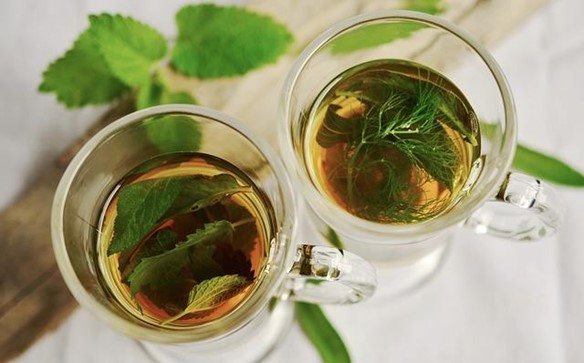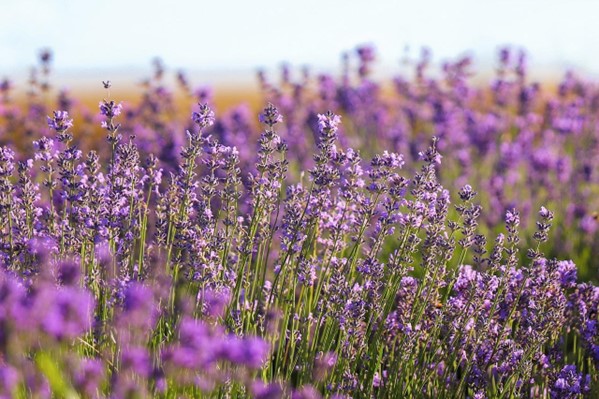CONTRIBUTED
Humans have used herbal extracts from time immemorial to manage a variety of illnesses. In fact, modern prescription drugs and over-the-counter (OTC) medicines are largely made from natural plant derivatives.
However, conventional medications are often laced with artificial chemicals. Whether used to mask a drug’s bitter taste or enhance its bioavailability, these additives can present worrying long-term health risks.
That explains why many wellness buffs are now gravitating back to raw, plant extracts.
If you prefer to consume ancient herbs in their natural forms, this article is for you. Read below for expert tips on how to adapt traditional herbs to your everyday lifestyle.

Photo Credit: Pixabay.com
1. Pick Appropriate Herbs
With thousands of species available, choosing the right ancient herb to add to your wellness routine may prove challenging. One cardinal principle is to consider the intended benefits.
Some popular medicinal plants to consider include;
Kratom
Kratom (Mitragyna speciosa) is the herb of choice if you’re seeking pain relief. The plant abounds in potent alkaloids, which attenuate pain by binding to specific opioid receptors in the brain.
Kratom’s powerful analgesic benefits explain why vendors are springing up in every country. However, it’s best to proceed cautiously and insist on a credible kratom vendor.
Canada Kratom Express is a top pick when looking for reputable kratom suppliers. The Canadian-based company ships high-quality, lab-tested, and sustainably sourced kratom throughout North America.
Cannabis
Cannabis has been around for millennia, with findings tracing its origin as far back as 2,500 years ago. While mostly famed for its euphoric effects, weed boasts over 100+ therapeutic compounds called cannabinoids.
Cannabidiol (CBD) and tetrahydrocannabinol (THC) are marijuana’s most popular cannabinoids. Both compounds may soothe anxiety, increase appetite, and numb pain, among other benefits.
Sunflower
Sunflower isn’t just famous for its gorgeous blossoms. This ancient herb may remedy numerous ailments as well.
Sunflower is loaded with tryptophan, a precursor for mood-elevating neurotransmitters like dopamine and serotonin.
Chamomile
There’s an abundance of research suggesting that chamomile is a nootropic thanks to its high concentration of apigenins.
According to one study, chamomile may enhance cognitive performance by activating benzodiazepines (BDZs) and gamma-aminobutyric acid (GABA) receptors in the brain.
Lavender
Lavender needs a little introduction. Besides its conspicuous presence in deodorants and topical creams, the herb has been a staple component of folk medicine for years.
Inhaling lavender fragrance has been shown to relieve insomnia and improve depressive symptoms.

Photo Credit: Pixabay.com
2. Research the Potential for Psychosis
Certain therapeutic herbs contain mind-altering properties. Therefore, you want to proceed cautiously while administering such plants.
Marijuana is probably the first thing that springs to mind when discussing psychoactive herbs. Excess consumption can trigger hallucinations, euphoria, and sensory distortion.
But unknown to many, weed’s psychotropic effects vary by each strain. Indica-dominant cultivars tend to be less psychoactive than their sativa-based counterparts.
Magic mushrooms, or psilocybin, is another potent psychoactive herb to beware of. While not addictive, psilocybin may cause short-term paranoia and psychosis.
Other common psychoactive plants include opium, ibogaine, ephedra, and sage.

Photo Credit: Pixabay.com
3. Choose an Excellent Delivery Method
There are multiple ways to consume ancient herbs, including;
- Smoking dried plant extracts
- Vaping herbal e-juices or concentrates
- Administering tinctures sublingually
- Consuming plant extracts as edibles
- Applying skincare topicals made from your choice of herb
Smoking and vaping deliver herbal compounds directly into your system through the mucous membranes in the lungs. Relief can come in as little as five minutes of the first draw.
However, the effects of inhaling plant vapors usually wear off in a few hours. Besides, smoking and vaping may expose you to cancer-related chemicals.
Meanwhile, edibles can take up to three hours to kick in. But once those effects manifest, they may linger in your system for days or even longer, depending on the doses consumed.
If you’re turning to ancient herbs to improve your skin’s radiance or treat localized pain and inflammation, then topicals would suit you best.
4. Don’t Forget the Legal Implications
Not every ancient herb is legal. In fact, most psychoactive plants are either banned or highly restricted in many jurisdictions. So, while these plants may provide numerous health benefits, their accessibility is subject to applicable regulations.
Cannabis is probably the world’s most regulated ancient herb.
In the United States, marijuana is illegal at the federal level but legalized in 24 states, the District of Columbia, and three territories. However, the enactment of the 2018 Farm Bill legalized hemp-derived cannabis products across all fifty states, provided they contain a maximum THC potency of 0.3%.
Kratom is also subjected to different regulations despite being far less psychoactive than weed.
While you can legally buy kratom throughout Canada, Health Canada and the Canadian Food Inspection Agency (CFIA) technically bar sellers from stocking kratom edibles.

Photo Credit: Pixabay.com
Wrap Up
There’s no shortage of ancient herbs that you could incorporate into your health and wellness routine.
However, medicinal plants aren’t a magic pill for every illness. In-depth research is vital to determine each herb’s indication and contraindication.
It’s also worth noting that certain natural extracts are banned in various jurisdictions. So, establish that you can legally access a medicinal herb in your locale before possessing, using, or distributing it.
Lastly, the adage that that too much of anything is poisonous applies to ancient herbs,. Despite their ‘natural’ designation, medicinal plants can trigger severe adverse events if overdosed. The conventional wisdom is to administer them sparingly and follow dosage recommendations from a licensed naturopath.



